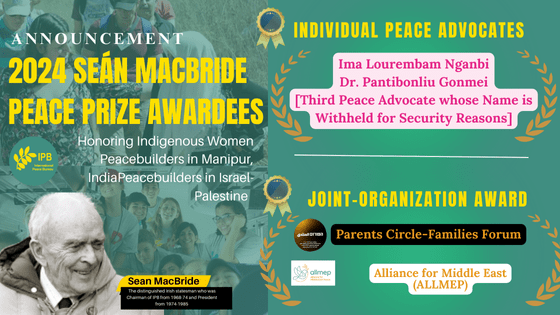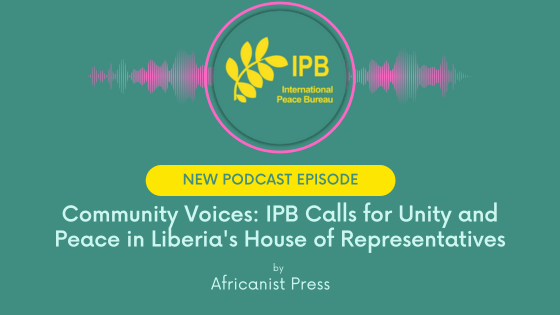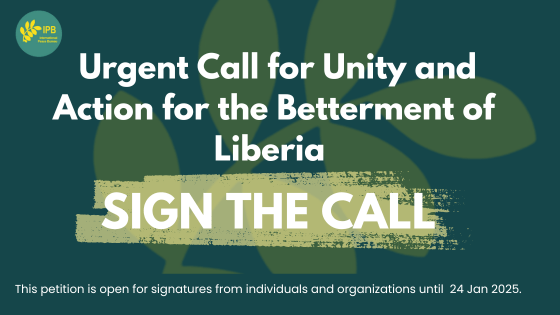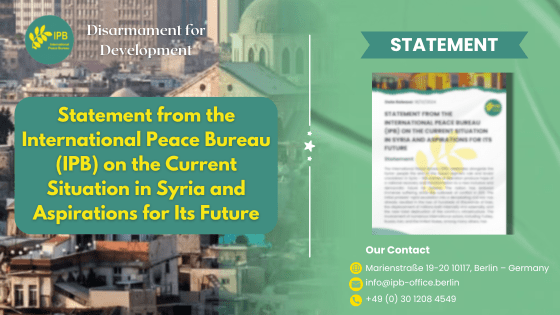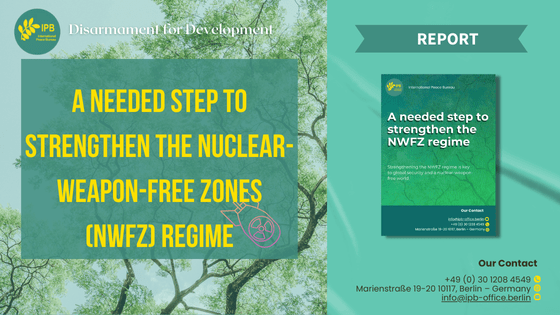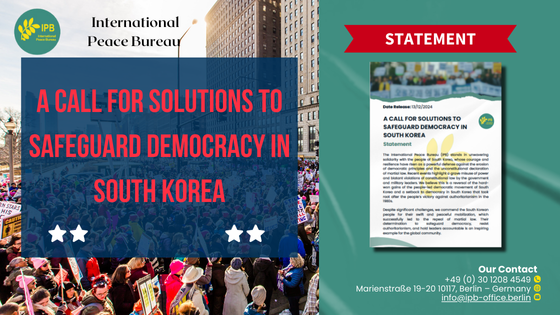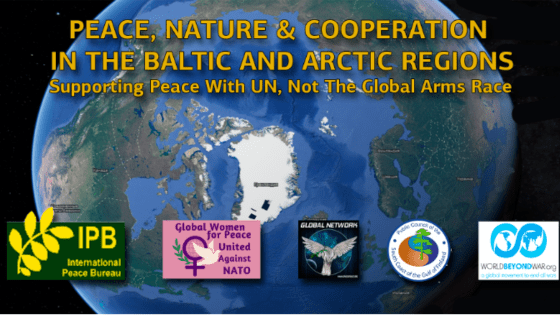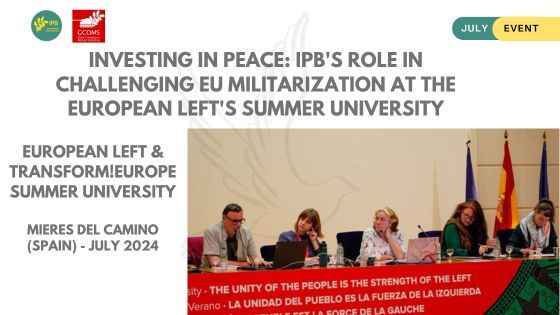21 February 2025, Berlin, Germany
The 2024 Seán MacBride Peace Prize honors the selfless efforts and dedication of organizations and individuals who promote healing, restoration, and human rights while embodying the principles of peace amidst diversity. This year, the prize is awarded to two joint organizations and three outstanding Indigenous women whose work reflects bravery, resilience, nonviolence, and genuine peacebuilding.
Continue reading “2024 Seán MacBride Peace Prize: Honoring Indigenous Women Peacebuilders in Manipur, India and Peacebuilders in Israel-Palestine “
